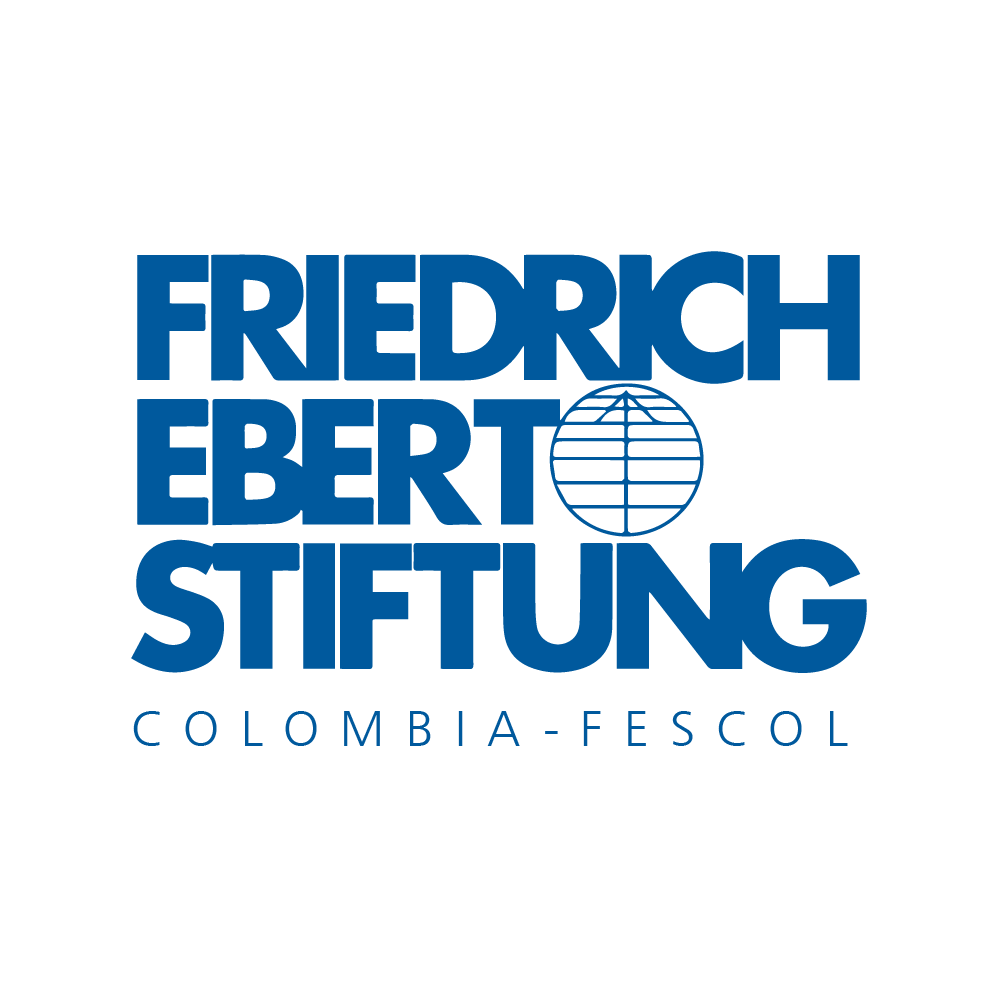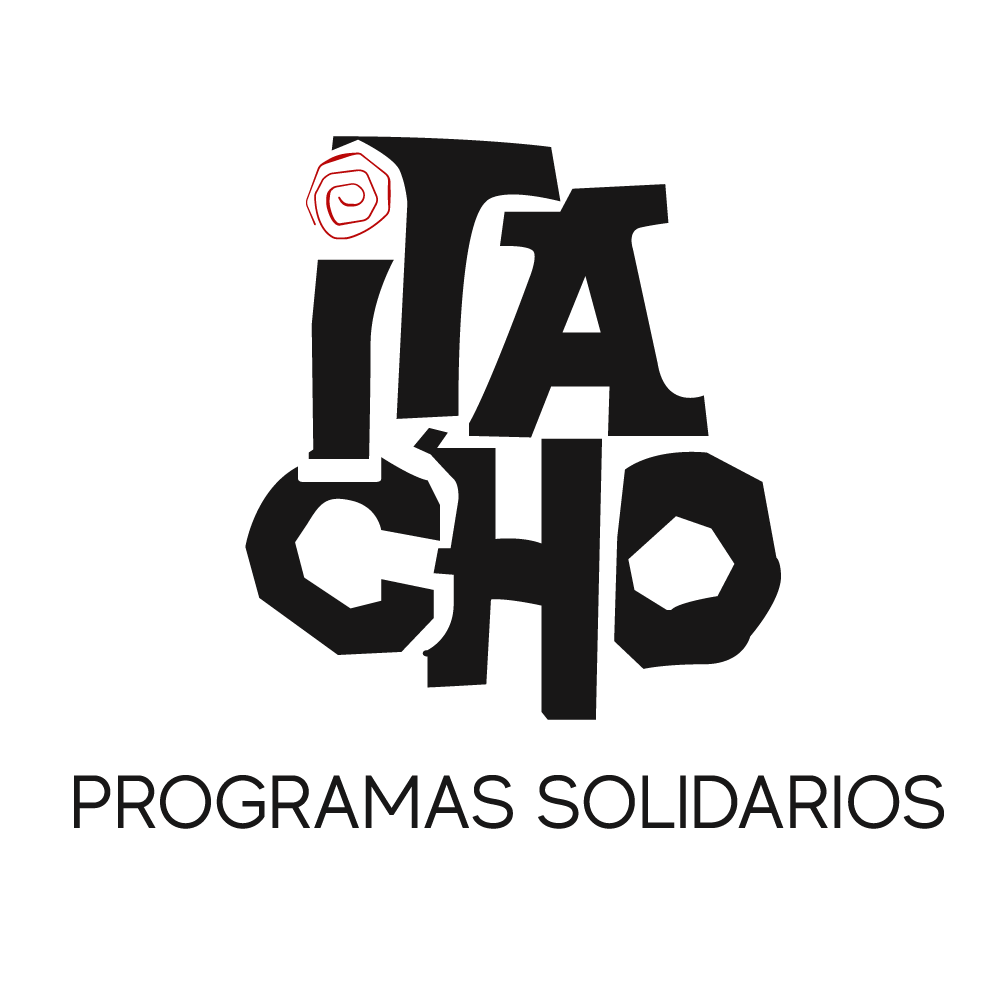“Help us as much as you can so that this information, which is coming from the communities, can have the greatest possible echo”, says to VerdadAbierta.com a community leader from the Middle Pacific sub-region, who prefers to keep his name confidential for security reasons, distressed because the welfare of his black communities has not arrived after the illusion awakened by the Development Programs with a Territorial Approach (PDET), agreed in the Peace Accord.
“The institutions in charge of the PDETs -continues this black leader- are deceiving the rest of Colombian society and also the international community because when the PDET’s management reports are presented in the Middle Pacific, they show that millions of dollars are being invested here and, in the end, nothing is happening”.
With the departure of the former FARC guerrillas from the territories where they had been present for several decades, the immense abandonment of this other Colombia, which for years has lived on the margins of access to fundamental rights, under the threat of day-to-day needs and without a comprehensive and effective presence of the State, was revealed with greater clarity.
It was found, for example, that in the south of the region of Meta, in the villages of Caño Amarillo and Albania, in the municipality of Vista Hermosa, there are five streams that have no bridge and on rainy days they swell and no one can move between villages, much less transport the harvest; also, it´s been seen that several Pacific communities are left in the dark when the light of day goes out, waiting for an electrification project.
To close the gap between the countryside and the city and provide welfare to rural communities, as part of the point on Comprehensive Rural Reform, the PDETs were agreed and came to life in March 2017 with Decree 893, a strategy expected to reach with social investment 170 municipalities in the country considered to be the most historically hit by the armed conflict. However, in several areas their inhabitants express dejection and annoyance because they still do not see concrete results.
An example of this can be seen in the distant village of Gaviotas, in the municipality of Uribe, in Meta, which has to be reached by a dirt road and stones for more than two hours. There, the communities say that the crops are not profitable because of the difficulties they face in getting them to the larger markets and the economic impulse has not arrived.
“The product is here, we plant it, but what do we do?” asks a farmer. “We have had to deforest a little bit because the only way is with cattle. When there was coca, some would cut down a hectare and plant it, process it and take it on foot, but to take plantain, for example, to the market we can’t take it on ‘foot’, we have to find means of transportation and pay for it. With PDET we were expecting roads”.
Like this one, other similar testimonies can be heard throughout the country while the phrase “we are complying”, repeatedly pronounced by Emilio Archila, presidential advisor for Stabilization and Consolidation, echoes in the microphones when he speaks about the implementation of the Peace Accord.
Closing the gap
Attached to the Presidency of the Republic, the Agency for Territorial Renewal (ART) began operating as of January 1, 2017. This entity is responsible for coordinating the intervention of national and territorial entities in rural areas affected by the conflict. As part of that objective, it abandons the coordination of the PDETs.
The process of consultation with the inhabitants to determine needs and project implementation tasks was carried out through a large participatory exercise that, at the time, the then President Juan Manuel Santos (2010-2018) described as “the largest social dialogue in the world”.
The needs of the communities were included in the Action Plans for Territorial Transformation (PATR), whose construction concluded in the first quarter of 2019 and involved the participation of more than 200 thousand people, of which 65 thousand were women, and involved 715 indigenous councils and 517 community councils of black communities.
This consultation process gathered the needs of more than 11 thousand villages that are part of 170 prioritized municipalities, grouped in 16 sub-regions, and categorized as the most affected by the armed conflict, poverty, illicit economies and institutional weakness.
As a result of this diverse dialogue, 32,808 initiatives were identified - 4,606 initiatives with gender and rural women, 8,381 ethnic initiatives and 619 ethnic and gender initiatives - to be implemented over a 15-year period, guided by the PATR.
These initiatives respond to the needs of these communities within eight pillars: Social Management of Rural Property and Land Use; Infrastructure and Land Adaptation; Rural Health; Rural Education and Early Childhood; Housing, Drinking Water and Basic Rural Sanitation; Economic Reactivation and Agricultural Production; System for the Progressive Guarantee of the Right to Food; and Reconciliation, Coexistence and Peace Building.
Measuring the progress of the PDETs, which are projected for 15 years, is no easy task. A single one of the more than three thousand initiatives may cover different and broad needs of a municipality or sub-region. This implies, according to ART, that "not necessarily through the execution of a single 'project' or a specific 'management' it is possible to achieve the execution or total fulfillment of an initiative. Also, some of the initiatives require permanent actions for their execution, such as, for example, those initiatives related to periodic maintenance or endowments".
According to ART's balance sheet, as of September 10, 2021, 8,594 initiatives had an active implementation path, i.e., associated with projects and actions that promote their implementation.
"Of the 8,594 initiatives, 9.82% are associated with the Land Management pillar; 12.83% with infrastructure; 8.46% with Rural Health; 25.04% with Rural Education; 7.30% with rural housing, drinking water and basic rural sanitation; 21.53% with Economic Reactivation; 5.32% with the Right to Food pillar and 9.70% with Reconciliation and Peace," states the entity.
Although it is difficult to qualify the fulfillment of the progress, as ART itself explains, when looking at the projects and works for the fulfillment of the initiatives, the general pulse when the communities are asked is that they expected more by this date.
The Agency has generally observed situations that generate risks associated with the execution stage of the projects, such as delays in the schedules for various reasons, shortage of raw materials due to the pandemic generated by Covid-19, climatic situations, hold ups due to road blockades during the National Strike in mid-2021, invasion of land where the works are being executed and some other cases due to price readjustments.
For a human rights defender from Alto Patía and Northern Cauca sub-region, who prefers to keep his name confidential for security reasons, the biggest problem in the implementation of the PDETs is the role of the ART, as he justifies that "in view of the expectations raised with the communities, the ART says: 'We are a coordinating entity, we are a facilitating and accompanying entity; we look for sources of financing, but we are not responsible for the execution of the PATR".
Following the money
The PEDTs are executed through three sources of financing: the Collegiate Body of Administration and Decision (OCAD Paz), which manages royalty resources; Works by Tax, with which the private sector can effectively participate; and resources from international cooperation.
On November 23, one day before the fifth anniversary of the signing of the Peace Agreement, the Rural Development Agency reported that the national government has invested 11.44 billion pesos in the 170 PDET municipalities.
According to reported information, the sources of those resources are discriminated as follows: OCAD PAZ, 6.23 trillion pesos; Works for Taxes for 607,456 million pesos; Colombia in Peace Fund, one trillion pesos; general budget of the Nation, 3.10 trillion pesos; and international cooperation, 428,105 million pesos.
On the other hand, when ART is asked about the resources that have been used for the initiatives, it maintains that up to August 31, 2021, with respect to the number of works executed with resources from the OCAD PAZ and Works for Taxes funds, 432 and 76, respectively, were carried out.
The regions with the highest number of projects in the OCAD Peace fund are Sierra Nevada, Perijá and Plantain Zone (72), Caguán Basin and Piedemonte caqueteño (49), Macarena - Guaviare (38) and Chocó (35). Of the total 432 projects in this fund, more than half (295) are set for pillar two Infrastructure and Land Adequacy, followed by Rural Housing, Drinking Water and Basic Rural Sanitation (89).
In the case of Works for Taxes, the subregions that occupy the first four positions are Alto Patía and Northern Cauca (11), Southern Tolima (11), Putumayo (9) and Arauca (9); most of them related to various supports for education and rural early childhood and rehabilitation, improvement and construction of roads.
In the information provided by ART on executed works, a road improvement project for the stretch that goes from the municipality of El Paujil to Cartagena del Chairá in the region of Caquetá appears as "finished", in which 35 billion pesos have been invested; however, a journalistic team of this portal verified, at the beginning of November of this year, that there are still some stretches to be concluded, which affects mobility in the area due to works on the road.
One of the aspects that draws attention in the response given by ART to VerdadAbierta.com is the clarification made by this agency about projects data that it does not manage, since they come from information exercises captured from other systems or external sources and "do not constitute the primary or official information about them". What is worrying about this clarification is that the entity does not have certainty about the works that are not under its control.
Outstanding accounts
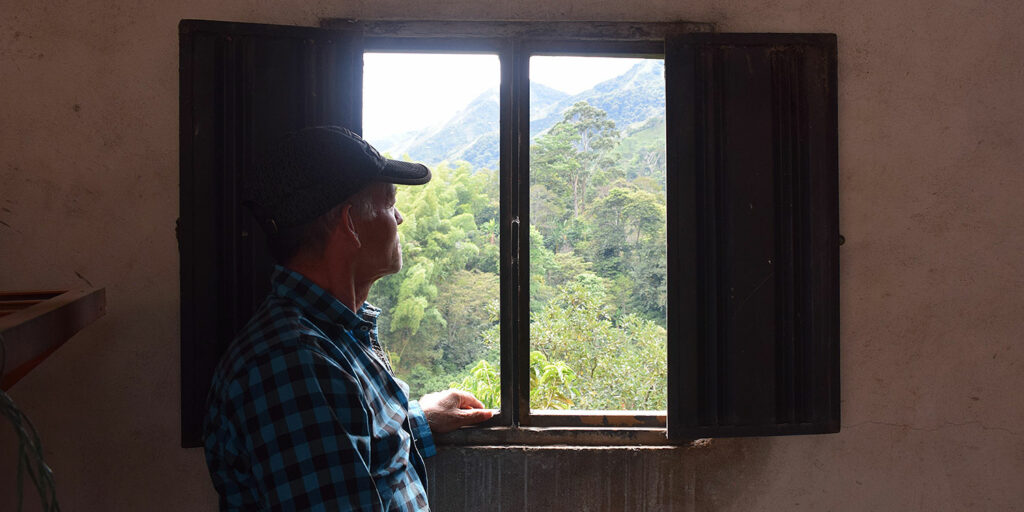
The PDET programs contemplated the execution of "low scale and fast execution works", through which projects such as school classrooms or playgrounds were intended to be built while the PATR was being constructed through local and regional community dialogues.
For Pacífico Medio, made up of the municipalities of Guapi, López de Micay and Timbiquí, in the region of Cauca, and the municipality of Buenaventura, in Valle del Cauca, the execution of at least ten of these small works for each of these four municipalities was agreed upon, but the PATR was signed, on February 23, 2019, and to date not a single one of them has been delivered. (Read more at: PDET is still on paper in the southwest and In the Middle Pacific they get their hopes up with peace money).
EGA Consortium, formed by Galán School Corporation for the Development of Democracy and Asfaltart S.A., is the operator of these works. To date, in Buenaventura, the most advanced work of this type is a children's park in the community council of Zacarías del Río Dagua; however, the contract signed by EGA Consortium and this Afro community has been in force for more than three months and the advance payment has not been made.
In the case of the municipality of Guapi, on the Cauca coast, according to information from ART, a park in the village of San Antonio de Guajui has been completed, but the complaint of the community council of the Guajui River is that they have not been paid the 221 million pesos that had been agreed for this work. In Timbiquí and López de Micay, as of the date of this publication, they have not started with the first work.
VerdadAbierta.com sought the directors of EGA Consortium. The spokesperson was assumed by Sergio Párraga, its legal representative, who specified to this portal that some of these small works that he has under his responsibility in several communities of the Pacific are in a state of structuring for those that have a higher degree of complexity, but the simple works, such as the playgrounds on which the communities expect payment to be made, did not require this type of process and that the chain of non-compliance begins with the State.
"As of today, I have been appropriated 14 million pesos after we signed the Middle Pacific contract in December 2019," says Párraga. "We do not have the contractual obligation to finance the works, it is up to the Colombia en Paz Fund to wire us to be able to pay. As of today, the Fund has not transferred the resources to us and we have had to assume many administrative costs".
The consortium's legal representative adds that they have had to seek loans to start making the small payments they have given to the communities.
In the case of the community council of the Guajui River, Párraga said that 60 million have been paid and a second payment of 120 million was scheduled for the end of November, leaving a balance of a little more than 41 million to be paid.
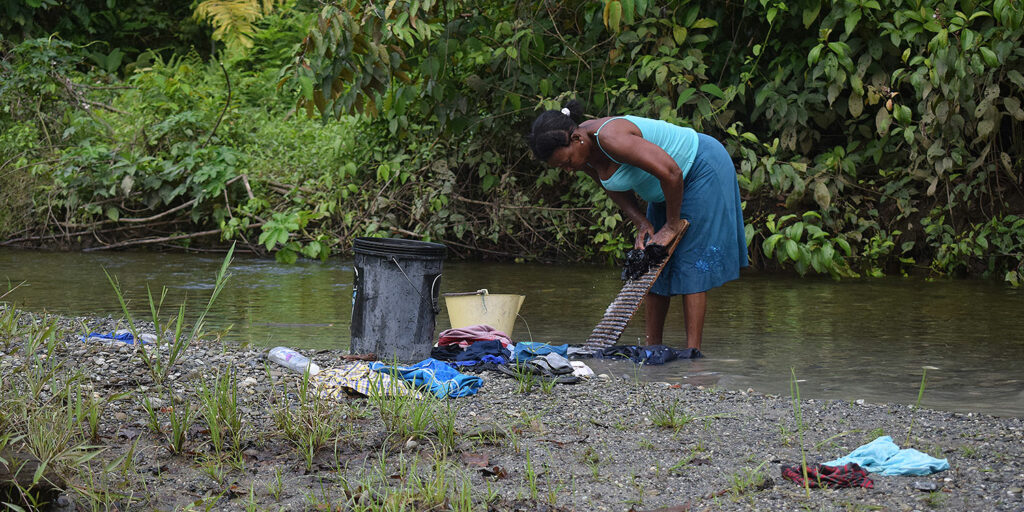
In Buenaventura they are scheduling a meeting in the course of this week to start the work and he maintains that it has not been possible to start with the execution of the playground project because the EGA Consortium still does not have the advance payment.
"Here there is an issue, and it is a document of the Consortium that we have put on the table in Technical Operating Committees before the national and regional ART, is that the structure of the contract does not point to the works being done as quickly as possible, it is a rather complex structure. Things should be much more agile, there should be resources", says the representative of EGA and specifies that this problem is not an isolated case of the Pacific, but that non-compliance is widespread with other operators in other sub-regions of the country.
"But to be as fair as possible, from two months ago the processes with the Fund began to advance", says Párraga and warns that the sanitary crisis due to the Covid-19 affected the execution of the works, in time and costs: "The materials went up a lot, the steel shot up, the concrete is impossible, the transports are tenacious, and now we are in a strong winter season".
Regarding the resources coming from the OCAD Paz, the communities of the Middle Pacific highlight that there is not a single work supported by this fund. No community council in the Middle Pacific is strong enough to formulate projects of this type," says the leader of the sub-region, who prefers to remain anonymous. The formulation itself is done through the mayor's offices, but if it is difficult for the mayor's offices because they do not have a defined budget and the personnel required for the formulation and follow-up of these projects, how will it be for the community councils? That is why there are no projects!".
In the case of the other PDET subregions of the Pacific, the spokesperson for the Middle Pacific considers that, although there are some works in these other municipalities, in general they are very few in comparison to other regions of the national geography. A worrying situation because the time for execution of the works, with each passing day, is less, given the 15-year compliance goal.
"It is aberrant. This also demonstrates to us that this country, from those who lead it, is still deeply racist and discriminatory, because here they are, the black and indigenous communities, so 'we should not send anything to them'", feels the leader of the Pacific.
Phase of “little participation”
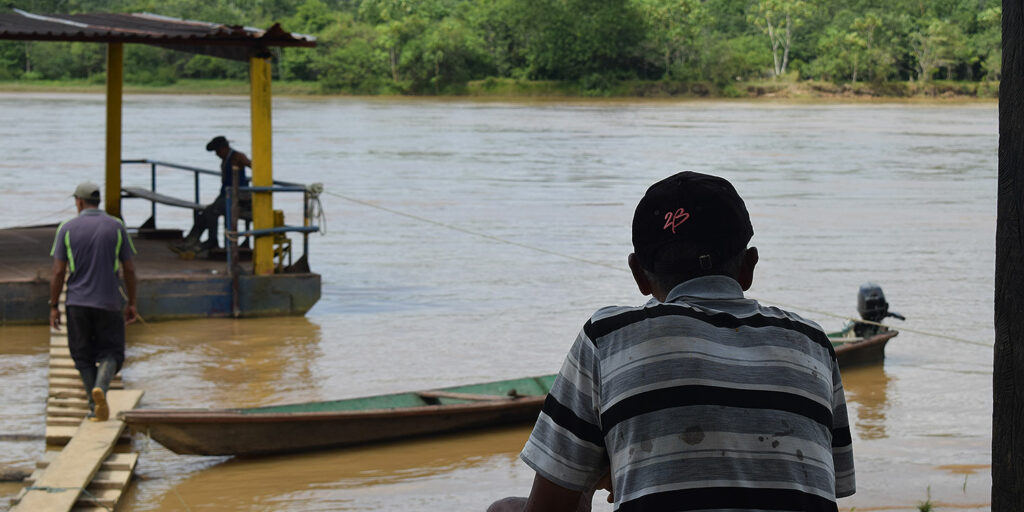
As part of a process of relationship of the leaderships of Alto Patía and Northern Cauca, human rights defenders constituted the Regional Articulation for Peace, from which they autonomously carry out a regional, as well as municipal oversight in relation to the implementation of the PDET in 24 municipalities in the regions of Valle del Cauca, Cauca and Nariño.
They are taking this initiative as they consider that the members of the oversight PDET that were established in the PATR, approved and signed in December 2018, were not trained to follow the implementation of the Program and "they are used to validate decisions in which the leaderships have not participated," says a human rights defender from the Cauca Regional Peace Space, who prefers to keep his name confidential due to the high rates of violence experienced in that region.
In this tension, the organizations of this sub-region stated that they have complained to the ART that information does not reach them, they do not socialize the initiatives that are being implemented and they do not communicate with them.
"There is very little participation, limited participation of the leadership of the driving group and social organizations that were present in the Regional Transformation Action Plan; in the prioritization, structuring and securing of resources for the 4,466 initiatives of Alto Patía and Norte del Cauca", for this reason the communities state that "they do not feel that peace has reached the territories".
In addition, the leaderships feel worn out, because, as this spokesperson explains, "some communities blame the people who were left as delegates of the driving groups or social organizations that participated in this process for the fact that nothing has been implemented".
The most recent activities carried out by the members of the driving group in each subregion was the validation of the road maps, a tool that allows the implementation of the PDETs, articulating national and territorial plans that are being developed in each territory. This document specifies execution times, responsibilities and financing, in addition to establishing monitoring mechanisms.
Eleven roadmaps are published on ART's web page, with the Middle Pacific, Macarena-Guaviare, Arauca and Alto Patía and Northern Cauca still pending. In the case of the latter, the human rights defender of the Cauca Regional Peace Space explains that they were still making adjustments to the document so that it would respond more accurately to the reality of the region, and include human rights and environmental aspects.
"Although, as a result of the construction and validation of the roadmap, some initiatives will be prioritized, which in this case are at the municipal and sub-regional levels, the process by which the source of financing is found and its execution is nowhere near ready", states the Cauca leader, who specifies that the initiatives will be prioritized, but will not have a due structuring and financing process.
They leave the table

The PATR of the Pacific region bears the signatures of ethnic communities (community councils and indigenous organizations), municipal mayors and governors; it is, in the words of the leaders an "ethnic PDET".
In the case of the Middle Pacific subregion, in order to continue with community participation in the initiatives of the Reconciliation, Coexistence and Peacebuilding pillar, it was agreed to build a subregional roundtable to follow up and monitor the implementation of the PDET, in addition to the creation of a roundtable to address issues that were not within the competence of this Program, such as the organizational needs of black communities, the possible role of indigenous communities as environmental authorities or modifications in the maritime division of the region. However, none of these initiatives were developed as planned.
"We, the communities, on our own, had to form the PDET Subregional Roundtable for the Middle Pacific," says the human rights defender consulted, as a strategy to follow the implementation of the PDETs. And since August 29, they decided to cease meetings on PDET issues with state institutions until three requests were met.
The first is the creation of a coordination for the Middle Pacific, because since its conformation it has never had one of its own, instead it’s been managed from the coordination of Alto Patía and Northern Cauca. "The fact that this coordination has not been created to a large extent also means that there have been no results here in the Middle Pacific", says the leader of this region.
In the second, they demand the recognition of the monitoring table that they created as a community and, in the third, they demand a plan to solve the deficit that the sub-region has in terms of formulation, feasibility and financing of projects so that the 629 initiatives agreed upon can be fulfilled in the time foreseen by the PDETs.
The Pacific leaders also asked the ART to have a space for conversation in which officials from the Renewal Agency, the Presidential Council for Stabilization and Consolidation and national and international guarantors would address these points. On October 13, they met with each other, but it did not turn out as the communities had hoped.
"We arrived there and there were the same people with whom we have always been talking to and with whom no results have been achieved for the Middle Pacific. The ethnic authorities of the Pacific took the decision that there was nothing to talk about and until today, November 22, we have not received an answer. We hear unofficially that (ART) is preparing a response".
Although at the failed meeting of October 13, ART representatives tried to persuade some of the leaders to continue the dialogue by stating that work would begin on November 1, as of the date of this publication there had been no progress.
In addition to the possible bureaucratic obstacles, there is the atmosphere of hostility that surrounds those who, from the communities, ensure compliance with the programs agreed upon in Havana, Cuba. Several human rights defenders throughout the country agree that they fear for their lives.
One of these regions is Cauca, which has rebounded, year after year since the signing of the Peace Agreement, as the region with the highest rates of lethal violence against leaders and ethnic authorities and where at least six dissident groups of the former FARC are present.
"The leaders of the driving groups -says a leader from Cauca-, who participated in the construction of the PDET, who have been demanding compliance with the PDET, increase their risks because in some places being a defender of the implementation of the Peace Agreement, of the PDET, becomes a risk due to the presence of armed groups, but also because the communities blame the non-compliance on the driving groups, on the social and community movements".
Therefore, he calls on the ART and other state institutions to avoid stigmatization, to support the role of monitoring the PDET works and to insist on the defense of the integrity of social leaders who still believe in the Peace Agreement and defend its implementation to the hilt as a way to repair the communities from so many decades of violence and marginalization.



